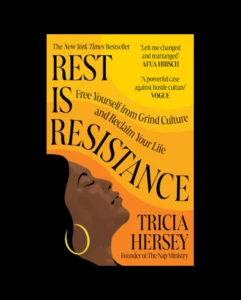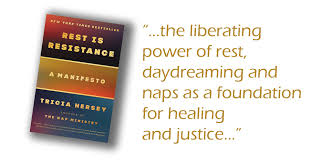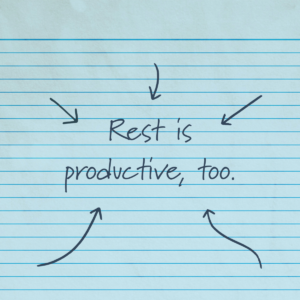Lying Flat, Setting Boundaries, Resting as Resistance, and Bed Rot
In an era defined by hustle culture, economic instability, and social upheaval, global movements are emerging that challenge the relentless demand for productivity and the commodification of human labor. Among them, China’s Tang Ping (躺平, “lying flat”), the Western phenomenon of Quiet Quitting, Tricia Hersey’s Rest is Resistance movement, and the viral trend of bed rotting each offer unique yet interconnected forms of resistance. Though they arise from different cultural and political contexts, all four articulate a radical refusal: the refusal to equate human worth with output, and the insistence that rest, boundaries, and autonomy are acts of defiance in exploitative systems.

Tang Ping: Rejecting the Rat Race
Originating in China, Tang Ping began as a social response to the pressures of hyper-competitive capitalism, where young people are expected to overwork, overconsume, and overachieve in a society with limited economic mobility. Faced with skyrocketing housing prices, grueling “996” work schedules (9 AM to 9 PM, six days a week), and bleak prospects, many Chinese youth began to “lie flat”—to reject traditional milestones of success like marriage, homeownership, and corporate ambition. Instead, they choose minimalist lifestyles, working only enough to survive, and reclaiming time for themselves. This passive resistance to overwork became a viral phenomenon, unsettling the state’s promotion of hard work as patriotic duty, and prompting censorship and backlash.
Quiet Quitting: Boundaries as Resistance
In contrast, Quiet Quitting emerged in Western contexts, particularly amid the COVID-19 pandemic, when workers reassessed their relationship with work. Quiet quitting does not involve leaving a job, but refusing to perform unpaid labor or go beyond one’s job description. It’s a form of setting boundaries, protecting one’s mental health, and reclaiming time for life beyond work. Like Tang Ping, it’s not about laziness, but about questioning a system that exploits dedication without reciprocity. Critics argue it signals disengagement, while supporters see it as an assertion of work-life balance and self-respect in a culture that romanticizes burnout.

Rest is Resistance: A Call to Reclaim Humanity
Tricia Hersey’s Rest is Resistance movement pushes this conversation further by centering rest as a form of political resistance and spiritual reclamation, particularly for Black people and those from historically oppressed communities. Hersey, through the Nap Ministry, teaches that rest is reparations—a response to centuries of forced labor, exploitation, and systemic violence. Her movement rejects grind culture not only as harmful, but as a tool of white supremacy and capitalism designed to extract labor and suppress liberation. In Hersey’s words, “Our bodies are not machines,” and to rest is to reconnect with our divine worth, imagination, and ancestral power.

Bed Rot: Rest as a Radical Act of Withdrawal
In a similar vein, bed rotting has become a cultural phenomenon and an expression of intentional withdrawal from the pressures of modern life. Though it may seem like mere laziness at first glance, bed rotting is often more about self-soothing and reclaiming autonomy than avoiding responsibilities. It involves spending extended periods of time in bed, sometimes doing nothing at all—scrolling on a phone, watching TV, or simply lying there. This act of rest challenges a society that increasingly values constant productivity and stimulation, offering a moment to pause, reflect, or simply disengage. For many, bed rotting is a direct response to the overwhelming stress of modern living and a rejection of the grind culture that prizes perpetual motion. While critics might dismiss it as indulgence, bed rotting, like Tang Ping, Quiet Quitting, and Rest is Resistance, is often a necessary act of self-care and a form of silent rebellion against a world that demands constant doing.

Autonomy, Resistance, Liberation
While these movements differ in origin—Tang Ping in China’s millennial disillusionment, Quiet Quitting in Western corporate fatigue, Rest is Resistance in Black liberation theology, and bed rotting as a form of individual self-care—they converge in their critique of capitalist exploitation. They all assert that human beings deserve rest, dignity, and autonomy, and that overwork is neither natural nor inevitable, but constructed. Moreover, they reveal that rest and refusal are not passive acts, but potent forms of resistance—whether it’s lying flat, doing the job and nothing more, napping as a revolutionary practice, or retreating to the sanctuary of one’s bed.
Ultimately, these movements invite us to reimagine value beyond productivity. They call for systems where rest is honored, labor is respected, and life is more than toil. In a world that demands constant motion, stillness can be the most radical act.

